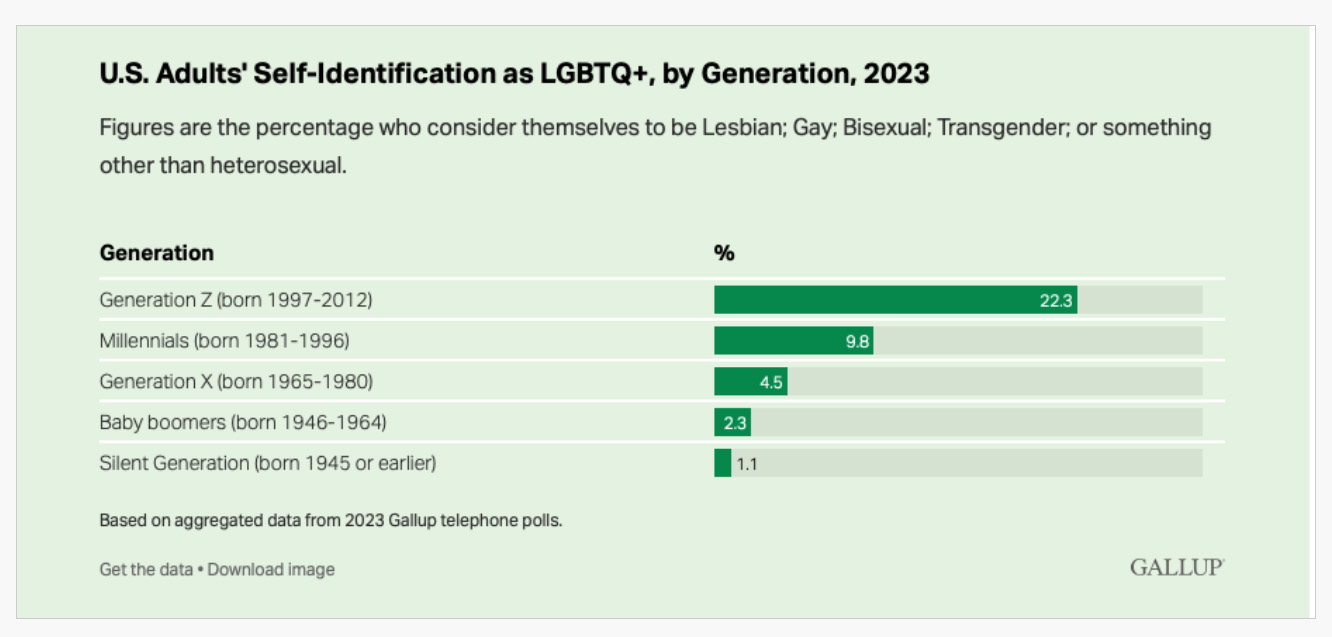
LGBTQ
ABOUT OUR RESEARCH
A 2023 national Gallup poll reports an increase in the prevalence of Americans identifying as LGBTQ+ — to a new high of 7.6%, overall. When they break that down by generation, they find that while 2.3% of baby boomers identify as LGBTQ, 22.3% of Gen Z do. Dividing that 22.3% by letter gives us: 3.0% identifying as Lesbian, 2.6% as Gay, 15.3% as Bisexual, 2.8% as Transgender, and 1% identifying as Other LGBTQ.

Increased prevalence in LGBTQ identification nationally could reflect both increases in LGBTQ identity, and decreased stigma about identifying as such over time that allows those who previously did not feel comfortable publicly identifying as LGBTQ to now do so.
Changes in assessment methodology also may have affected the shift. In particular, new phrasing appeared critical to clarifying a wider prevalence of bisexuality than was previously understood. In the new Gallup data more than half of LGBT adults identified as bisexual (57.3% overall). It is notable that due to the risks still involved in identifying as LGBTQ for many, an anonymous Gallup poll is among the best sources of information we have on a major portion of our society.
The inadequacies of current measurement of LGBTQ identity exemplify the complex enterprise of documenting precarious populations for whom sharing information might create risk of violence, job penalties, stigma, or other harm. Populations at risk of domestic violence, of deportation, of arrest, and other dangers also often don't want to share data, and researchers seek not to collect information in a way that would put people at risk. But lack of data makes delivery of empirically supported services impossible and means we do not understand critical aspects of our community. This lack of information and understanding may in turn fuel legislative action that may harm, for example, transgender youth and LGBTQ people more generally.
As the region’s first gender-and-sexuality-focused think tank, the UH IRWGS aims through empirical research to amplify discussion of the social and economic forces linked to intersectional gender and sexuality that have long gone unexamined. And to engender positive change.
We work with local study partners to collect relevant data and generate analyses. See below for a link to our recent study on Migration Attitudes. More to come!
